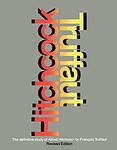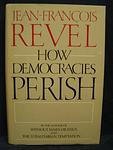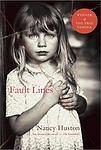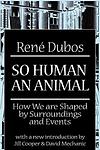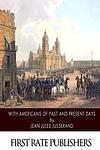The Greatest French "United States" Books of All Time
Click to learn how this list is calculated.
This list represents a comprehensive and trusted collection of the greatest books. Developed through a specialized algorithm, it brings together 300 'best of' book lists to form a definitive guide to the world's most acclaimed books. For those interested in how these books are chosen, additional details can be found on the rankings page.
Genres
The "United States" category for books encompasses literature that is set in or explores the history, culture, and society of the United States. This includes works of fiction, non-fiction, and memoirs that focus on American life, politics, and social issues. Books in this category may cover a wide range of topics, from the founding of the nation to contemporary issues such as race, gender, and immigration. The United States category is a broad and diverse genre that reflects the rich and complex history of the country.
Countries
Date Range
Reading Statistics
Click the button below to see how many of these books you've read!
Download
If you're interested in downloading this list as a CSV file for use in a spreadsheet application, you can easily do so by clicking the button below. Please note that to ensure a manageable file size and faster download, the CSV will include details for only the first 500 books.
Download-
1. The Count of Monte Cristo by Alexandre Dumas
A young sailor, unjustly accused of treason, is imprisoned without trial in a grim fortress. After a daring escape, he uncovers a hidden treasure and transforms himself into the mysterious and wealthy Count of Monte Cristo. He then sets out to exact revenge on those who wronged him, using his newfound power and influence. Throughout his journey, he grapples with questions about justice, vengeance, and whether ultimate power can ultimately corrupt.
-
2. Democracy in America by Alexis de Tocqueville
This influential book offers an in-depth analysis of the strengths and weaknesses of 19th century American democracy. The author, a French political thinker, provides a detailed examination of the democratic process and its impact on society, politics, and the economy. The work highlights the importance of civil society, local institutions, and the spirit of equality in ensuring the stability of democracy. It also delves into the dangers of majority tyranny, the potential for democratic despotism, and the critical role of religion and morality in sustaining a democratic nation.
-
3. Manon Lescaut by Abbe Prevost
"Manon Lescaut" is a tragic novel about a young man of good family who sacrifices everything for his passionate love for a beautiful but deceitful woman, Manon. Despite his sincere love for Manon, she continually betrays him for wealth and comfort, leading to their downfall. The story is a cautionary tale about the destructive power of obsessive love and the tragic consequences of a lack of moral strength and self-discipline.
-
4. Around the World in Eighty Days by Jules Verne
The novel follows the journey of a wealthy Englishman who makes a high-stakes wager that he can travel around the world in eighty days. Accompanied by his loyal French valet, they encounter numerous obstacles and adventures across different cultures and landscapes, including rescuing a beautiful Indian woman from a ritual sacrifice. The book is a celebration of the technological advancements of the 19th century, with the main characters utilizing various modes of transportation such as steamships, railways, and even an elephant.
-
5. The Bald Soprano by Eugène Ionesco
"The Bald Soprano" is a play that explores the absurdity of everyday life through a nonsensical narrative. It revolves around two middle-class English couples, the Smiths and the Martins, who engage in meaningless and repetitive conversations. The play is known for its unconventional structure, lack of plot, and the characters' surreal behavior, which are all used to satirize the banality and futility of routine and social norms. The title refers to a character who is never seen or mentioned again after the opening scene.
-
6. Hitchcock by Francois Truffaut
The book is a comprehensive exploration of Alfred Hitchcock's films, based on a week-long series of interviews between the iconic British director and a renowned French filmmaker. It delves into Hitchcock's cinematic style, thematic preoccupations, and technical innovations, providing insights into his creative process. The dialogue format allows readers to witness an exchange of ideas between two film industry giants, offering a deeper understanding of Hitchcock's influence on cinema and his status as the master of suspense. The book also includes numerous stills from Hitchcock's films, adding a visual dimension to the discussion and making it an invaluable resource for film students, enthusiasts, and professionals alike.
-
7. Whatever by Michel Houellebecq
"Whatever" is a satirical novel that explores the life of a depressed and disillusioned computer programmer working for a software company in Paris. The protagonist's life is characterized by his cynicism and indifference towards his job, his failed relationships, and society at large. His only relief comes from his philosophical musings about life and the human condition. The novel is a bleak critique of modern society and the isolation and alienation brought about by technology and capitalism.
-
8. I Spit On Your Graves by Boris Vian
The book in question is a controversial revenge novel centered around an African-American man who passes for white in a small American town. Seeking vengeance for his brother's lynching, he systematically targets and seduces white women, leading to a series of violent and sexually explicit encounters. The narrative unfolds as a brutal critique of racism and the American justice system, culminating in a shocking and grim conclusion that reflects the deep-seated racial tensions of the era. The book's graphic content and exploration of racial identity have sparked significant debate and censorship since its publication.
-
9. Orson Welles by André Bazin
This book provides an in-depth analysis of Orson Welles, a seminal figure in cinematic history, whose innovative techniques and storytelling prowess left an indelible mark on the world of film. The author meticulously examines Welles' entire oeuvre, from his groundbreaking work in "Citizen Kane" to lesser-known projects, highlighting his artistic evolution, thematic interests, and the distinctive use of sound and visuals. Through a critical lens, the book explores how Welles challenged conventional filmmaking norms and discusses his lasting influence on both contemporary directors and the broader cinematic landscape.
-
10. Memoirs Of A Revolutionary by Victor Serge
"Memoirs of a Revolutionary" presents a vivid account of political activism and survival during a turbulent period in 20th-century Europe. The author, a committed revolutionary, provides an insider's perspective on the rise and fall of various socialist movements, detailing his involvement in the Russian Revolution and subsequent disillusionment with the Stalinist regime. Through his narrative, he explores the moral and ethical challenges faced by intellectuals and activists in a time of revolutionary fervor and political repression, offering a poignant reflection on the struggles and sacrifices of those who dedicate their lives to the cause of social change.
-
11. How Democracies Perish by Jean François Revel
This book provides a deep analysis of the threats faced by democracies, specifically from totalitarian regimes. The author argues that democracies are often their own worst enemies, being too tolerant and indecisive, which can lead to their downfall. He further discusses how democracies can be manipulated by totalitarian regimes through propaganda and misinformation. The book serves as a warning and a call to action for democratic societies to recognize these threats and take steps to defend their values and institutions.
-
12. Teacher in America by Jacques Barzun
"Teacher in America" is an insightful examination of the American education system and the role of teachers. The author provides a critical analysis of the challenges faced by educators, the importance of pedagogical methods, and the necessity of fostering a love for learning in students. The book also highlights the role of teachers in shaping society and emphasizes the need for educational reform to better equip students for the future.
-
13. A Spy In The House Of Love by Anaïs Nin
Set in the bohemian high society of 1950s New York, the novel follows the life of Sabina, a woman trapped in a loveless marriage who seeks fulfillment and identity through a series of passionate love affairs. As she navigates the complexities of love and sexuality, Sabina struggles with her own self-deception and the societal expectations that confine her. The story is a psychological exploration of a woman's quest for self-discovery and liberation.
-
14. Capital in the Twenty-First Century by Thomas Piketty
This book provides a comprehensive analysis of the dynamics of capital accumulation and distribution over the last few centuries. The author argues that the rate of capital return in developed countries is persistently greater than the rate of economic growth, leading to high levels of wealth inequality. The book further suggests that the level of income inequality is not primarily a result of differences in individual labor income but rather the result of differences in capital ownership and the income derived from it. The author proposes a global tax on wealth to prevent soaring inequality.
-
15. Capitalism, Socialism, Ecology by Andre Gorz
In "Capitalism, Socialism, Ecology," the author explores the complex relationships and conflicts between economic systems and environmental sustainability. He critically examines the failures of both capitalism and real-existing socialism in addressing ecological crises, arguing that neither system is adequately equipped to tackle the environmental challenges of our time. The book advocates for a new ecological order that transcends traditional economic paradigms, proposing a radical restructuring of societal values and economic practices to prioritize sustainability, social justice, and human well-being over profit and growth. Through this analysis, the author contributes to the broader discourse on environmental politics and the search for viable alternatives to unsustainable economic models.
-
16. Project For A Revolution In New York by Alain Robbe-Grillet
The book in question is a complex and fragmented narrative that delves into the chaotic and surreal environment of a post-revolutionary New York City. Through a series of disjointed scenes and characters, the novel explores themes of violence, sexuality, and political upheaval. The narrative structure defies conventional storytelling, with an elusive plot that challenges the reader's perception of reality. The work is emblematic of the author's involvement with the Nouveau Roman movement, which sought to revolutionize literary form and content by breaking away from traditional narrative techniques.
-
17. Atala by François-Auguste-René de Chateaubriand
"Atala" is a romantic novella set in the wilderness of the American South, blending the natural landscape with the tragic love story of its protagonists. The narrative follows Chactas, a Native American man, who recounts his youthful love affair with Atala, a half-European, half-Native American woman. Their love is challenged by cultural differences and Atala's vow of chastity, which she made to her mother. The story is imbued with themes of passion, religion, and the noble savage, and it reflects on the conflict between duty and desire. Ultimately, the novella is a poignant exploration of forbidden love and the sacrifices made in its name, set against the backdrop of a disappearing natural world and the encroachment of European civilization.
-
18. Fault Lines by Nancy Huston
"Fault Lines" is a novel that delves into the complex layers of family history and the impact of past traumas on the present. The narrative unfolds through the eyes of four different children from successive generations of the same family, each chapter moving back in time to reveal the secrets and challenges faced by their ancestors. The story explores themes of identity, memory, and the inherited nature of suffering, as the protagonists grapple with the legacies of war, displacement, and personal tragedy that ripple through their lineage. The novel's unique structure and poignant storytelling invite readers to reflect on how the fault lines of history can shape individual lives and relationships across generations.
-
19. Them: A Memoir Of Parents by Francine du Plessix Gray
"Them: A Memoir of Parents" is a compelling exploration of the author's complex relationship with her glamorous and larger-than-life parents. The author delves into her mother's past as a Russian émigré and fashion icon, and her stepfather's career as a renowned magazine editor. The memoir is a study of the glittering world of mid-20th century New York, the impact of war and displacement, the power dynamics in her parents' marriage, and the author's struggle to carve out her own identity amidst these overwhelming personalities.
-
20. A History Of Molecular Biology by Michel Morange
"A History of Molecular Biology" delves into the scientific advancements and discoveries that shaped the field of molecular biology from the early 20th century to the late 1990s. The book explores the pivotal experiments, technologies, and figures that contributed to our understanding of the molecular mechanisms underlying life processes. It highlights the interdisciplinary nature of the field, drawing on contributions from genetics, biochemistry, and physics, and discusses the impact of molecular biology on related scientific areas and its implications for biotechnology and medicine. The narrative also addresses the philosophical and ethical issues raised by new biotechnological capabilities.
-
21. So Human an Animal by René Dubos
"So Human an Animal" is a Pulitzer Prize-winning work that explores the complex relationship between the environment and human health. The book argues that the rapid technological advancements and urbanization of the 20th century have negatively impacted human health and happiness. The author suggests that a return to a more natural way of living and a reconnection with nature could help to alleviate these issues. The book is a call to action, urging society to consider the impact of its actions on the environment and human well-being.
-
22. With Americans of Past and Present Days by Jean Jules Jusserand
"With Americans of Past and Present Days" is a collection of essays that explore the history and culture of the United States, with a focus on the country's relationship with France. The book delves into the lives of key figures in American history, their contributions to the country's development, and their interactions with French culture and politics. The author, a diplomat, offers a unique perspective on the shared history and mutual influence between the two nations.
Reading Statistics
Click the button below to see how many of these books you've read!
Download
If you're interested in downloading this list as a CSV file for use in a spreadsheet application, you can easily do so by clicking the button below. Please note that to ensure a manageable file size and faster download, the CSV will include details for only the first 500 books.
Download




